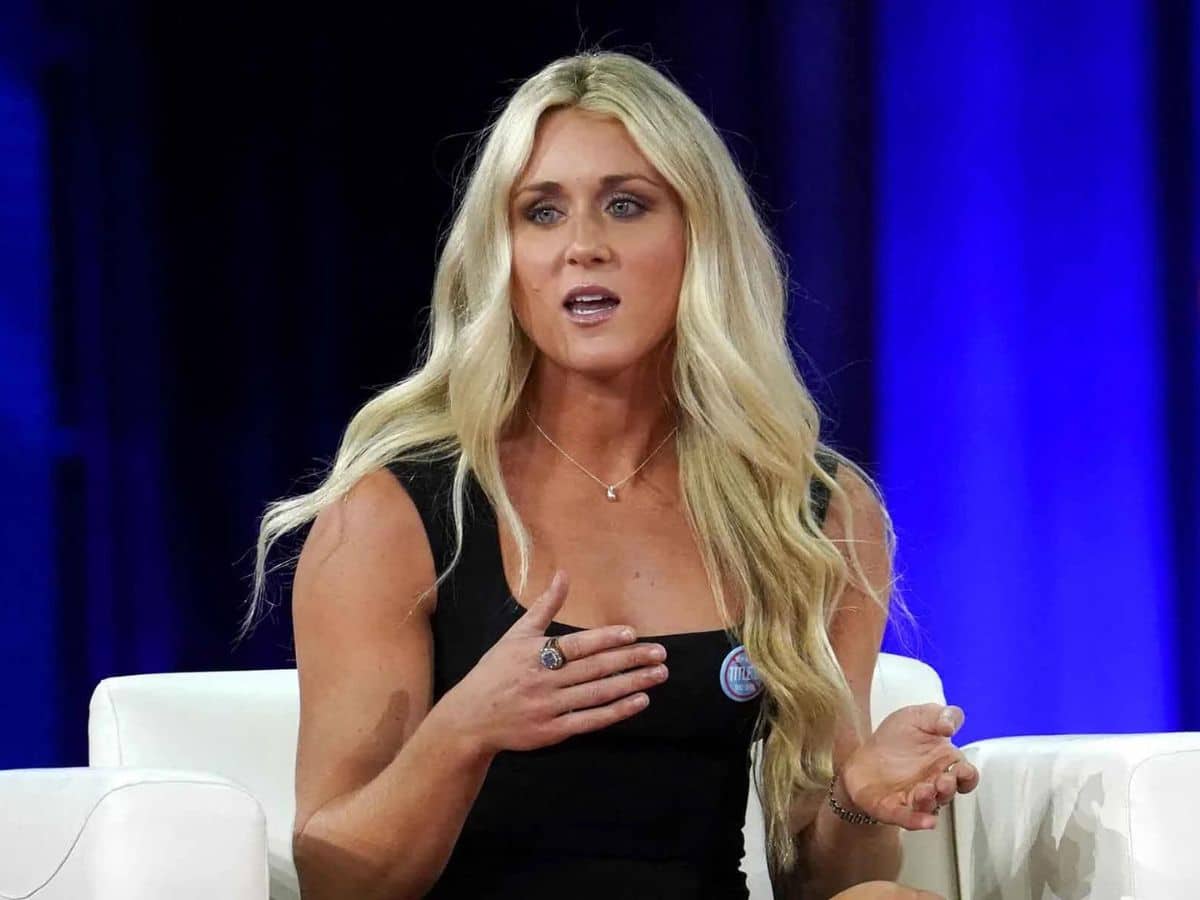“How many women have to get hurt?” Riley Gaines questions authorities on women’s safety after ALARMING locker room experience
Former swimmer Riley Gaines shares her impactful journey and advocates for policy changes regarding transgender athletes in shared locker rooms.

Riley Gaines ( Image via National Review )
Former University of Kentucky swimmer, Riley Gaines, finds herself caught in the aftermath of a single event that has left her questioning the impact of transgender athletes in shared locker rooms. Gaines strongly believes in the importance of maintaining a clear division between men and women in sports.
She raises concerns about potential unfair advantages resulting from physiological differences when cisgender women compete against transgender women like Lia Thomas. Furthermore, as the question of women’s safety lies in jeopardy, Gaines propels the authorities to be responsible for the security of women in women’s sports.
In a recent podcast discussion with former Olympian Sharron Davies, Gaines highlighted the urgent need for policy changes and fair competition. With the well-being and opportunities of women at stake, Gaines’s poignant query resonates How many more women must suffer or be exploited before this issue is taken seriously?
The power of one voice where Riley Gaines sparks a revolution in sports equality

Riley Gaines’ encounter in the locker room with transgender athlete Lia William Thomas has had a significant impact on her professional path. Gaines, like many other sportsmen, recognizes the value of inclusiveness and diversity in athletics she also mentioned, “How many women have to get hurt?”.
She is also aware of the possible ramifications and obstacles that occur when biological disparities are present. Her fear is that transgender women may have physiological advantages owing to their former masculine characteristics, which might have an influence on the fair competition that is the cornerstone of sports.
Gaines‘ outlook is not one of hate or exclusion. She emphasizes that transgender athletes should not be barred from participating in sports, but rather urges locker room arrangements to be reconsidered in order to accommodate the concerns of cisgender women like herself.
Separate locker rooms, according to Gaines, would provide a more pleasant and egalitarian atmosphere for all players. Gaines seeks to achieve a balance that respects everyone’s rights and offers a fair playing field by considering the varied experiences and needs of both cisgender and transgender persons.
The topic of transgender inclusion in sports is complex. It entails evaluating the fine line between inclusion and justice. While transgender athletes should be allowed to participate, it is critical to examine the effect.
Riley Gaines’ story is a dramatic illustration of how a single incident may change the trajectory of an athlete’s career and raise crucial concerns about equality and justice in sports. Gaines’ path from the University of Kentucky swim team to being an outspoken campaigner against possible exploitation in shared locker rooms highlights the critical need for reform.
Gaines thinks that by creating this debate, he may push legislative changes that enable fair competition while being inclusive. It is critical to achieve a balance that protects transgender rights while also addressing the valid concerns of cisgender women like Gaines.
In case you missed it:

